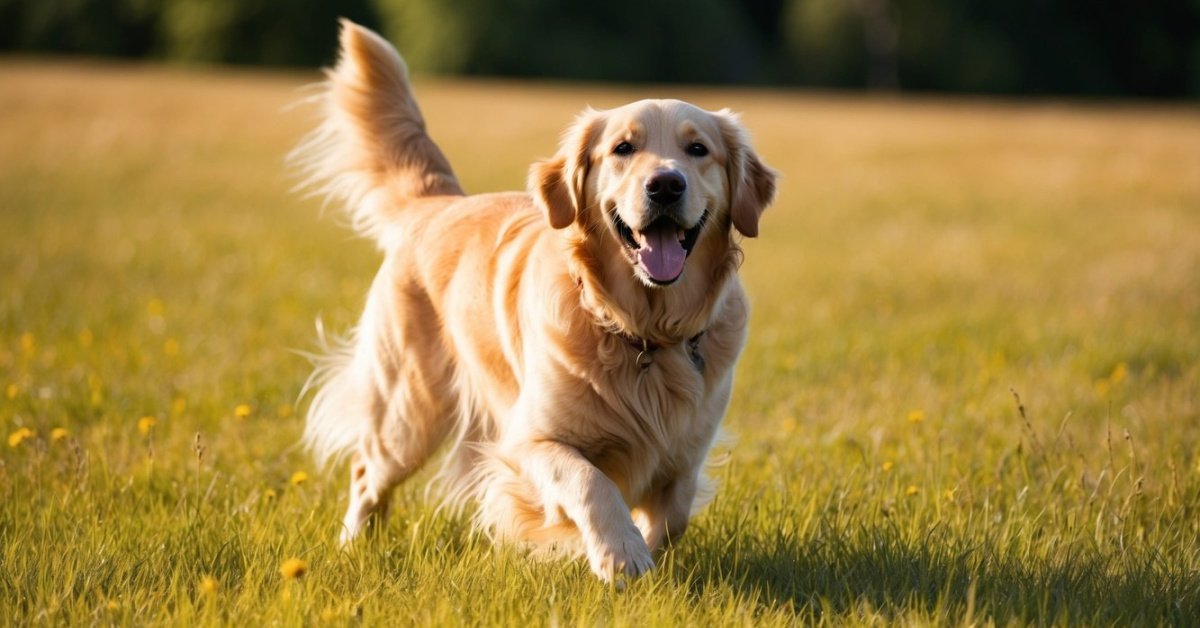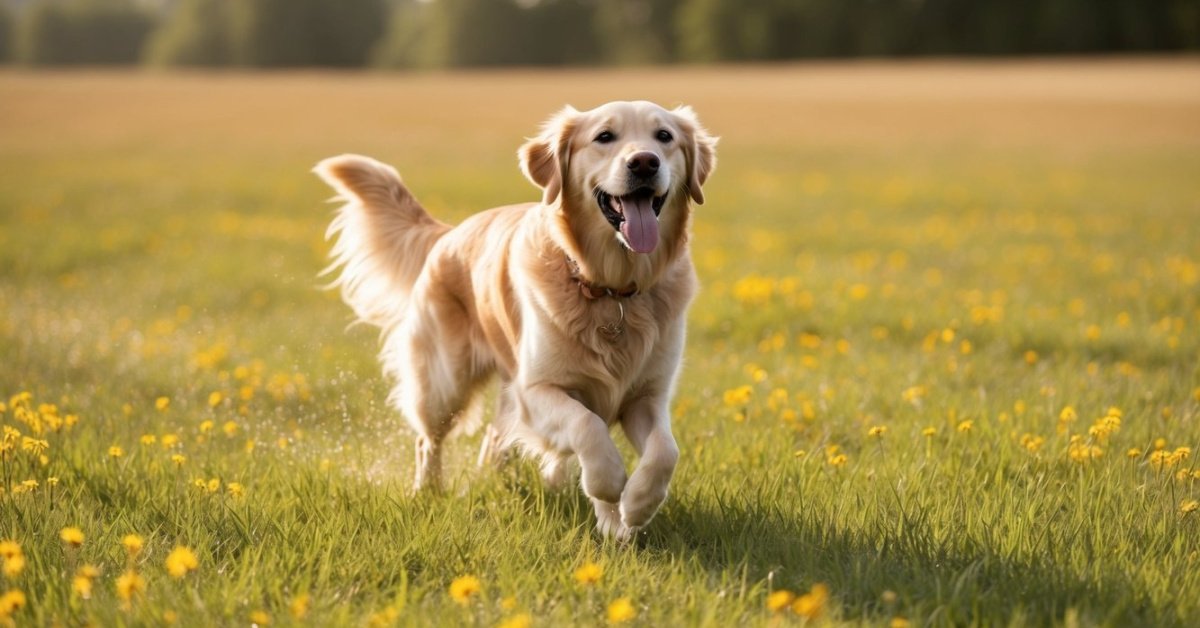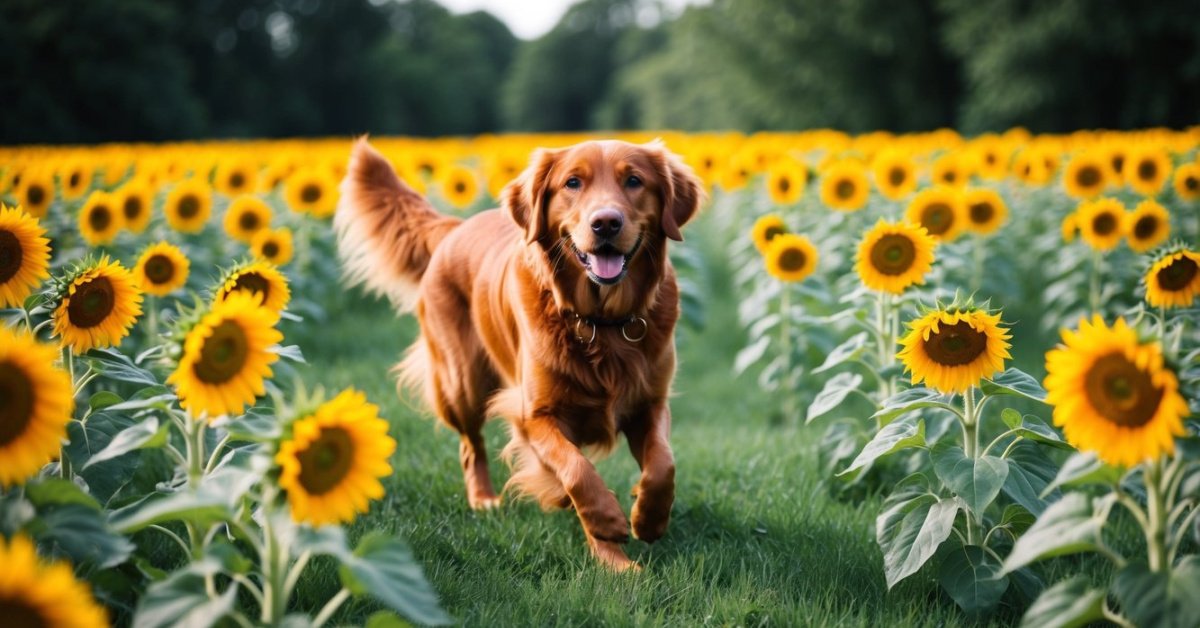Are you a proud owner of a golden retriever who suddenly seems disinterested in their food? It can be quite concerning when your furry friend stops eating, but there can be a number of reasons behind this behavior. In this article, we’ll explore some of the common factors that may cause a golden retriever to lose their appetite. Understanding why your golden retriever is not eating can help you address the issue and ensure their health and happiness.
Has your golden retriever’s appetite taken a sudden nosedive? Don’t panic just yet! There are several potential explanations for why your beloved furry companion has lost interest in their meals. In this article, we’ll delve into some of the common reasons why a golden retriever may stop eating. By identifying the underlying cause, you can take the necessary steps to get your furry friend back on track and enjoying their meals again.
If you’ve noticed that your golden retriever has become a picky eater or has completely stopped eating altogether, it’s important to investigate the possible reasons behind this change in behavior. In this article, we’ll explore some of the common factors that can contribute to a golden retriever’s loss of appetite. By understanding the potential causes, you can take appropriate action to ensure your furry friend’s well-being and restore their love for mealtime.
Common Reasons for a Golden Retriever to Stop Eating
As a dog lover and owner of a golden retriever and a Goldendoodle, I understand how concerning it can be when your furry friend suddenly loses their appetite. There can be several reasons behind this change in behavior, and it’s essential to identify the underlying cause to address the issue promptly. Here are some common reasons why your golden retriever may stop eating:
- Health Issues: Just like humans, dogs can experience health problems that affect their appetite. Dental issues, gastrointestinal problems, infections, and even certain medications can lead to a decreased appetite. If your golden retriever consistently refuses to eat, it’s crucial to consult with your veterinarian to rule out any health concerns.
- Stress or Anxiety: Dogs, especially sensitive breeds like golden retrievers, can be affected by stress or anxiety. Changes in their environment, such as moving to a new home or the introduction of a new pet, can cause them to lose their appetite. Creating a calm and routine-based environment can help alleviate their stress and restore their appetite.
- Dietary Changes: Introducing new food or abruptly changing their diet can sometimes lead to a loss of appetite. If you’ve recently switched your golden retriever’s food, they may need some time to adjust. Gradually transitioning to a new diet can help prevent any negative impacts on their eating habits.
- Age-related Changes: As golden retrievers get older, their metabolism and energy levels may decline, which can result in a decrease in appetite. It’s essential to monitor their weight and adjust their portion sizes and nutritional needs accordingly. Your veterinarian can provide guidance on the best diet for your senior golden retriever.
- Behavioral Issues: Sometimes, behavioral issues such as picky eating or food aggression can cause a golden retriever to lose interest in their meals. Encouraging a regular feeding schedule, using positive reinforcement during mealtime, and providing a peaceful eating environment can help address these challenges.
Remember that every dog is unique, and the reasons for their loss of appetite may vary. If your golden retriever’s decreased appetite persists or is accompanied by other concerning symptoms, it’s crucial to seek professional advice from your veterinarian. By understanding the common reasons behind your golden retriever’s loss of appetite, you can help them get back on track to enjoying their meals and maintaining their health and happiness.
Medical Causes of Appetite Loss in Golden Retrievers
As a dog lover and an experienced professional who has worked with animals in various settings, including shelters and veterinary offices, I understand that it can be concerning when your beloved golden retriever or Goldendoodle suddenly loses their appetite. There are several medical causes that can contribute to this loss of appetite in your furry friend. Let’s explore some of them:
Dental Problems
Just like humans, dogs can experience dental issues that make eating painful or uncomfortable for them. Periodontal disease, broken teeth, or oral infections can all contribute to appetite loss. It’s essential to regularly check your golden retriever or Goldendoodle’s teeth and gums for signs of dental problems.
Gastrointestinal Disorders
Various gastrointestinal disorders, such as gastritis, gastroenteritis, or inflammatory bowel disease, can cause decreased appetite in your dog. These conditions can lead to digestive discomfort, nausea, and even vomiting, making your furry friend reluctant to eat.
Organ Dysfunction
If your golden retriever or Goldendoodle is experiencing issues with their liver, kidneys, or other vital organs, it can affect their appetite. Organ dysfunction can lead to a decrease in appetite due to pain, discomfort, or a disruption in their body’s normal functioning.
Infections
Infections, such as respiratory infections or urinary tract infections, can cause dogs to lose their appetite. Usually, when dogs are not feeling well, they tend to eat less. It’s crucial to monitor your furry friend closely and consult with a veterinarian if you suspect an infection.
Medications or Treatments
Certain medications or treatments, including chemotherapy or pain medications, can have side effects that cause a loss of appetite in dogs. If your golden retriever or Goldendoodle has recently started a new medication or treatment, it’s essential to keep an eye out for any changes in their eating habits.
Remember, if you notice your golden retriever or Goldendoodle losing their appetite, it’s crucial to consult with a veterinarian to determine the underlying cause. They can conduct a thorough examination, perform necessary tests, and provide appropriate treatment options. By addressing the medical cause behind the appetite loss, you can help your furry friend get back to enjoying their meals and maintaining their overall health and happiness.
Behavioral Issues that Can Lead to Loss of Appetite
Sometimes, your beloved golden retriever may suddenly lose interest in their food, and it can be concerning. While medical issues often play a role in appetite loss, there are also behavioral factors that can affect your pup’s eating habits. Understanding these potential issues can help you address them and get your furry friend back to enjoying their meals.
Stress or Anxiety: Dogs, just like humans, can experience stress or anxiety, which can lead to a decreased appetite. Changes in their environment, such as a move to a new home or the introduction of a new pet, can trigger these feelings. Additionally, loud noises, separation anxiety, or any disruption in their routine can contribute to their loss of appetite. Creating a calm and comfortable environment for your golden retriever can help alleviate their stress and encourage them to eat.

« Unveiling the Shocking Truth: The Worst Age for Golden Retrievers Revealed
Unlock the Secrets: Discover the Perfect Size for Golden Retrievers and Maximize Their Cuteness Quotient »
Boredom: Dogs need mental and physical stimulation to stay engaged and content. If your golden retriever is not getting enough exercise or mental stimulation, they may become bored with their food. Consider incorporating interactive toys, puzzle feeders, or rotating their meals with different flavors or textures to keep their interest piqued.
Behavioral Issues: Some dogs develop behavioral issues around mealtime, such as food guarding or picky eating habits. Food guarding occurs when a dog becomes possessive over their food and may growl or become aggressive when approached. Picky eating habits can be caused by indulging in table scraps, inconsistent feeding times, or being hand-fed too frequently. Implementing consistent feeding schedules, avoiding feeding from the table, and practicing positive reinforcement training can help address these behavioral issues.
Social Eating: Dogs are social creatures and may feel uncomfortable eating alone. This can especially be the case if they are used to company during mealtime, such as dining with other dogs or humans. If your golden retriever is experiencing social eating issues, try feeding them in the presence of others or consider feeding them at the same time as their furry friend.
Understanding the potential behavioral issues that can lead to a loss of appetite in golden retrievers can help you identify and address the underlying cause. By creating a calm environment, providing mental and physical stimulation, addressing behavioral issues, and considering social eating, you can help your furry friend rediscover their love for mealtime. Remember, if your golden retriever’s appetite loss persists or is accompanied by other concerning symptoms, it’s essential to consult with your veterinarian for proper guidance and care
Dietary Factors to Consider when a Golden Retriever Stops Eating
As a dog owner, you know how important it is for your furry friend to have a healthy appetite. So, when your golden retriever suddenly stops eating, it can be concerning. While there are many potential reasons for a loss of appetite, it’s essential to consider dietary factors that may be contributing to this behavior. Here are a few things to consider when your golden retriever stops eating:
1. Food preferences: Just like humans, dogs can sometimes get bored with their food. If your golden retriever has been eating the same brand or flavor of food for a while, they may simply be craving a change. Consider switching up their diet by introducing new flavors or brands to see if it piques their interest.
2. Food allergies or sensitivities: It’s possible that your golden retriever has developed an allergy or sensitivity to one or more ingredients in their food. Common allergens for dogs include beef, chicken, wheat, and soy. If you suspect a food allergy, consult with your veterinarian to identify the specific ingredient causing the issue.
3. Dental problems: Dental issues can make eating painful for dogs. If your golden retriever is experiencing tooth pain, they may be avoiding food altogether. Look for signs of dental problems such as bad breath, swollen gums, or difficulty chewing. Regular dental check-ups and good oral hygiene can help prevent these issues.
4. Feeding routine: Dogs thrive on routine, and any disruption to their regular feeding schedule can affect their appetite. Make sure you are consistent with feeding times and avoid feeding table scraps or too many treats, as this can lead to a picky eater.
5. Environmental factors: Golden retrievers are sensitive dogs, and environmental stressors can impact their appetite. Changes in their environment, such as moving to a new home or the addition of a new pet, can cause anxiety and result in a decreased appetite. Creating a calm and comfortable eating environment can help alleviate their stress.

Remember, if your golden retriever’s appetite loss persists for more than a day or two, it’s important to consult with your veterinarian. They will be able to assess your dog’s overall health and help pinpoint the underlying cause of their decreased appetite. By addressing dietary factors and working with your vet, you can get your golden retriever back to enjoying their meals and maintaining their health and happiness.
Steps to Take if Your Golden Retriever Won’t Eat
If you find yourself in a situation where your beloved golden retriever won’t eat, it can be a cause for concern. As a dog lover and someone with experience working at animal shelters and veterinary offices, I understand the importance of addressing this issue promptly. Here are some steps you can take to help get your furry friend back on track:
1. Observe and Monitor: Start by closely observing your golden retriever’s behavior and appetite. Note any changes in their eating habits, energy levels, or any other symptoms that may be present. Keeping a record can help you provide valuable information to your veterinarian.
2. Rule Out Medical Causes: It’s essential to rule out any potential medical causes for your golden retriever’s loss of appetite. Dental problems, gastrointestinal issues, or organ dysfunction can all be culprits. Consult with your veterinarian to conduct a thorough examination and, if necessary, perform diagnostic tests to identify any underlying conditions.
3. Review Medications and Treatments: Certain medications or treatments can have side effects that can impact your golden retriever’s appetite. Check with your veterinarian to see if any recent changes in medication could be a contributing factor.

4. Address Behavioral Factors: Remember that dogs can be sensitive creatures, and behavioral factors may also play a role in their eating habits. Stress, boredom, behavioral issues, or even feeling uncomfortable eating in social situations can lead to a decreased appetite. Consider any recent changes or stressful events in your golden retriever’s life and try to address them accordingly.
5. Evaluate the Feeding Routine and Environment: Take a close look at your golden retriever’s feeding routine and environment. Are there any changes you can make to create a more positive and stress-free dining experience? Consider using puzzle toys, feeding on a consistent schedule, or providing a quiet and calm space for mealtime.
6. Offer a Variety of Food: Golden retrievers, like any other dog, may have preferences when it comes to food. Experiment with different flavors and textures to find something that appeals to your furry friend’s taste buds. However, remember to consult with your vet to ensure that any changes in the diet are safe and appropriate for your dog’s health.
Remember, consulting with a veterinarian should always be your first course of action when your golden retriever stops eating. They can help identify the underlying cause and recommend specific solutions tailored to your dog’s needs
Conclusion
By following the steps outlined in this article, you can help address the issue of your golden retriever not eating. Remember to carefully observe your dog’s behavior and rule out any underlying medical causes. Reviewing medications and treatments, addressing behavioral factors, evaluating the feeding routine and environment, and offering a variety of food can all play a role in encouraging your dog to eat.

However, it’s important to remember that if your golden retriever continues to refuse food or shows signs of illness, it’s crucial to consult with a veterinarian. They can provide professional guidance and ensure your dog’s health and well-being.
By being proactive and attentive to your dog’s needs, you can help them regain their appetite and ensure they receive the nutrition they require. Remember, your furry friend relies on you to provide the best care possible, so don’t hesitate to seek professional advice when needed.

















